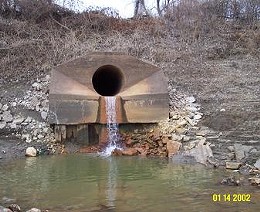Were you even aware, before Tuesday's special election, that we voters in the city and county had to make a near-billion-dollar decision?
That the Metropolitan St. Louis Sewer District wanted us to approve a bond issuance of $945 million in order to spread the financial pain of beginning a $4.7 billion upgrade to our sewers?
Chances are that Mike Kelley, the consultant who ran the "Clean Water STL" campaign in support of Proposition Y, didn't bother telling you. He did that on purpose. Only nine percent of registered voters in the MSD boundaries showed up at the ballot box, and Prop Y passed by about 85 percent.
Kelley says he was "shocked" at the positive result.
"It was the most precise campaign I've ever been involved in," he says. Here's how he pulled it off:
Kelley says he concentrated solely on those folks who'd never missed a vote in the last four years. That ended up to be a "miniscule" subset of the registered voters in St. Louis city and county -- around 120,000 households.
Then he hit those people those households with four mailings and at least three phone calls. Some received what he calls "validators," (for example, a union member might've gotten literature from the union).
"We didn't concentrate on the bigger stuff," Kelley says. "We focused like a laser beam on those people."
Background: The MSD agreed in 2011 to make this huge upgrade to St. Louis sewers as part of a settlement with the EPA, who'd sued us in 2007 for the millions of gallons of raw sewage we'd been dumping into waterways for the previous seven years.
We the taxpayers have to pay for it, of course. The question embedded in Proposition Y was exactly how. Issuing bonds is like taking out a mortgage on a house -- it makes the payments more manageable, but it lengthens the time you have to pay, and in the long run, requires you to pay more (thanks to the interest).
If we hadn't approved the bonds -- in other words, the "pay-as-you-go" approach -- the average family's sewer bill would've more than doubled immediately to raise cash for the initial construction. (According to the Post-Dispatch, it would've gone from $28.73 to $64.15 this year).
By the way, this project ain't going away. It's supposed to take 23 years. We all need to get used to hearing about it.
Campaign to Approve Sewer Upgrade Bonds Took "Laser Beam" Approach, To Huge Effect
- Local St. Louis
- News
- Things to Do
- Arts & Culture
- Food & Drink
- Music
- Movies
- St. Louis in Pictures
- About Riverfront Times
- About Us
- Advertise
- Contact Us
- Jobs
- Big Lou Holdings, LLC
- Cincinnati CityBeat
- Louisville Leo Weekly
- Detroit Metro Times
- St. Louis Riverfront Times
- Sauce Magazine


